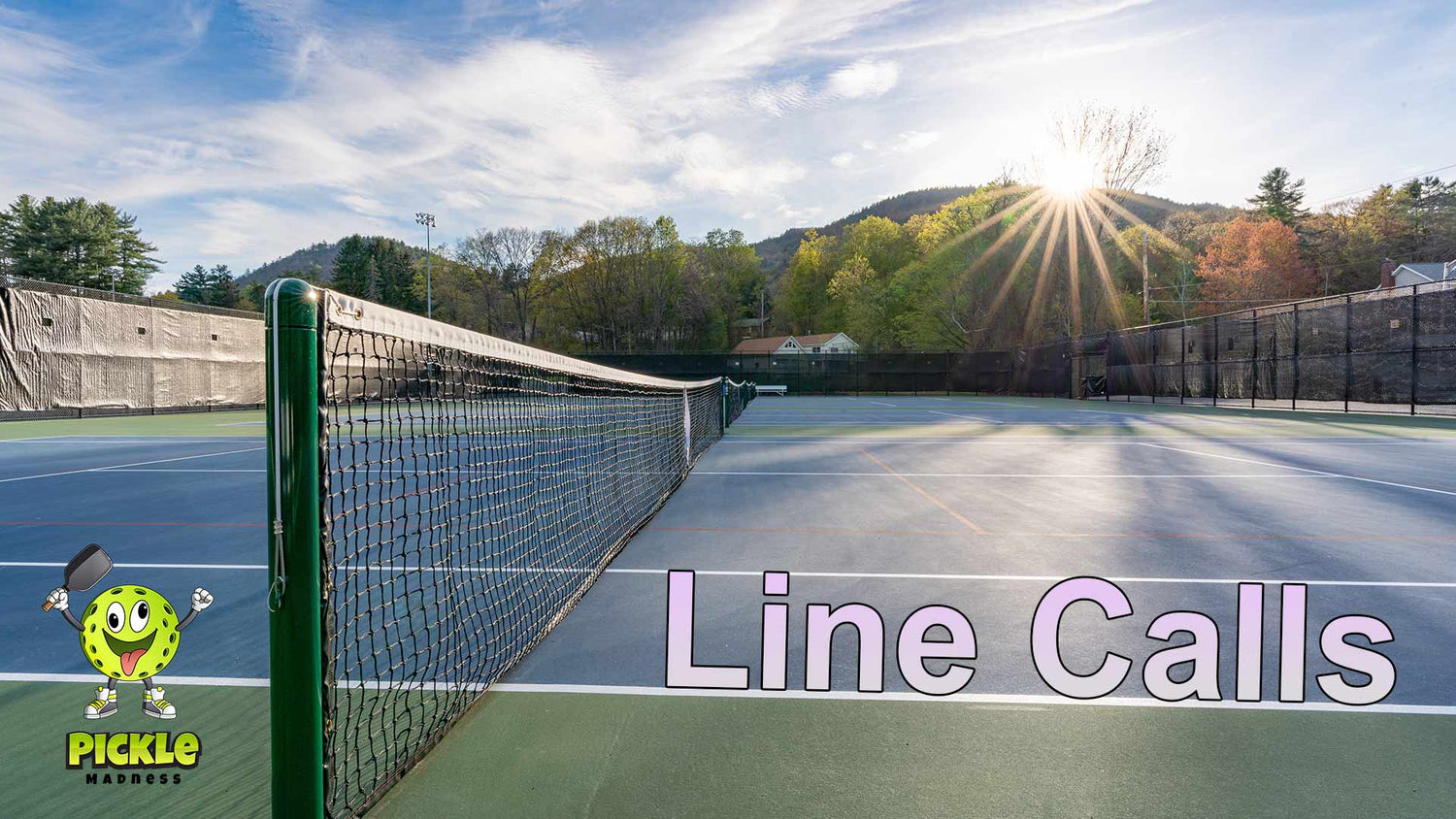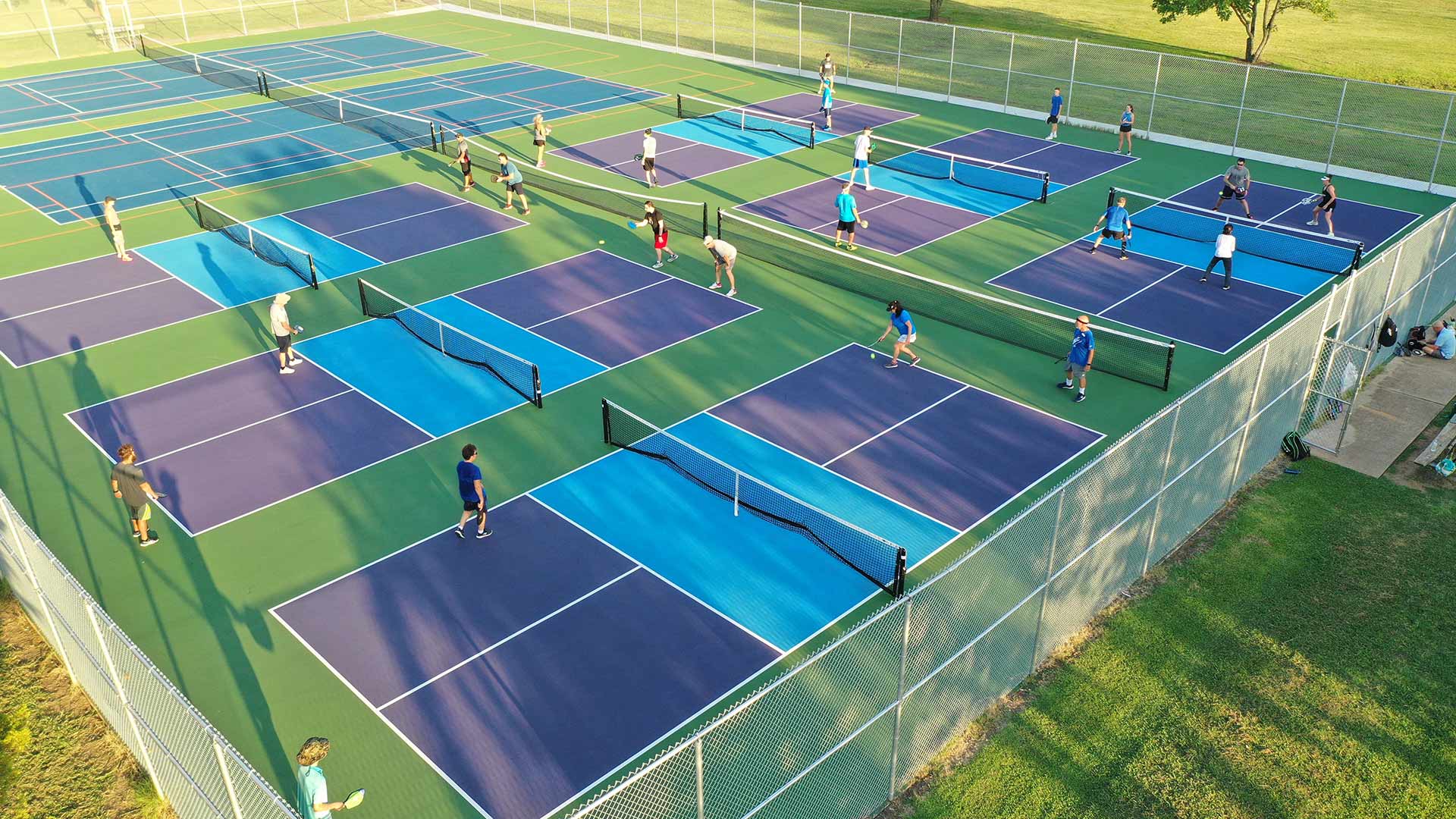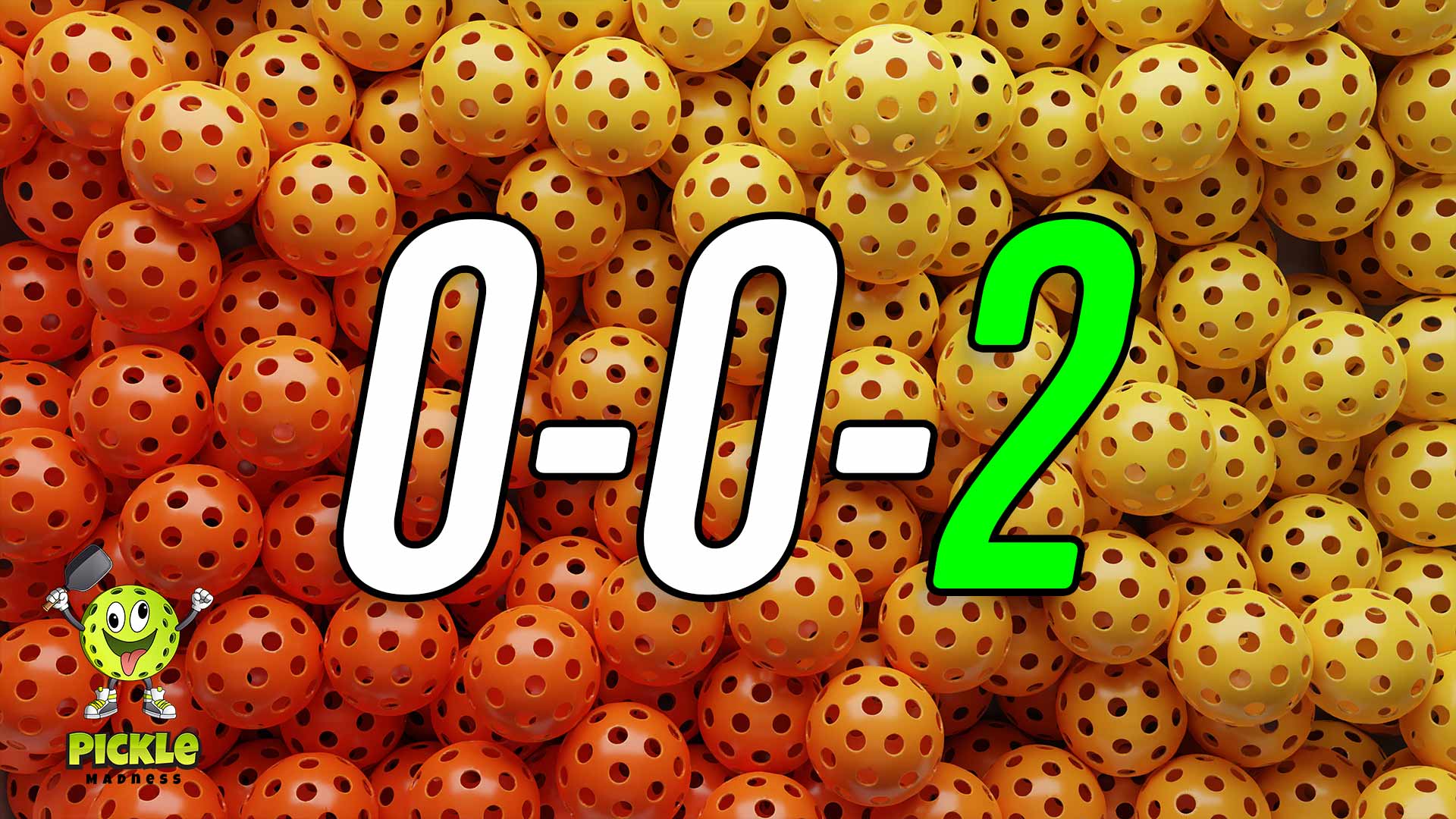Pickleball is easy and fun, but even experienced players get into arguments over line calls. While the rules are simple, the fast pace of the game and close calls can be tricky. This guide goes into all the details of pickleball line calls so you can play with confidence and fair play.
The Basics
At its core, pickleball line calls are about two things:
- The Serve: A serve is good if the ball lands in the service court. All lines of the court except the Non-Volley Zone line (aka the Kitchen line) are considered "in". So if your serve hits the sideline, centerline, or baseline, it’s a good serve. But if it lands in the Kitchen, on the Kitchen line, or outside the service box altogether, it’s a fault.
- All Other Shots: Beyond the serve, the ball is "in" as long as it touches any part of the court’s surface, including all boundary lines. So if the ball hits the sideline, centerline, baseline, or even the Kitchen line during a volley, it’s still in play. The only exception is if the ball lands completely outside the court; it’s an "out" call and a fault for the player or team that hit it.
Player’s Responsibility
In pickleball, players are responsible for calling lines. Each player is responsible for their own side of the court, including calling any Non-Volley Zone or service foot faults on their opponent. But when there’s a dispute on a call, the point is replayed to keep things fair. In doubles, either player on a team can call on their side of the court.
When Officials Intervene
When officials are on the scene:
- Referee Only: Players are responsible for most line calls, but the referee handles certain situations. The referee calls service and Non-Volley Zone foot faults, short serves, and any other Kitchen rules.
- Referee and Line Judges: In this scenario, players have minimal input on line calls. They only call the centerline on serves. The referee and line judges handle all other faults, rules, and line calls. Any call made by a player (except the centerline on serves) is invalid unless it’s to their own detriment.
With a referee and line judges on the scene, players can appeal any line judge’s call to the referee. If the referee overrules the line judge, the point is replayed to keep things fair. If the officials can’t make a call, the point is replayed unless all players on the court agree the ball was “out”.
Pickleball Culture
Pickleball is more than just the rules; it’s also about the culture of fair play and good sportsmanship. This is reflected in the honor system for line calling in most recreational and even tournament play. To further promote this culture, the Official Rulebook for pickleball has a Code of Ethics for Line Calling.
- Accuracy: Players should strive to be accurate in their calls and only call a ball “out” when they have clear visual confirmation of space between the line and the ball’s landing spot. Remember the best vantage point for making these calls is often from inside the line looking across to the outside of the court.
- Promptness is Key: “Out” calls must be made quickly, ideally before the opponent hits the ball or the ball becomes dead. Hesitation or delayed calls can cause confusion and disputes, so make your call promptly and decisively. If an “out” call isn’t timely, the ball is assumed to be “in” and play continues.
- Clear Communication: Use both voice and hand signals to call “out” even when the call is obvious. This ensures everyone on the court, including hearing-impaired players, knows what’s happening. Hand signals are especially encouraged when playing with deaf or hard-of-hearing players.
- Benefit of the Doubt: When in doubt, give your opponents the benefit of the doubt. It’s better to err on the side of caution and let a close call go in their favor than to create unnecessary conflict or accusations of unfair play.
- Doubles Disagreements: In doubles, if partners disagree on a line call, the ball is automatic “in”. If a referee is present, the team can appeal the call, and the referee can only overrule if they had a clear view of the ball landing “out”. However, seeking a referee’s intervention forfeits the team’s right to make the call themselves.
- Respect: Spectators should not influence line calls, and players should not question their opponents’ calls. In the presence of a referee, players can appeal a line call before the next serve.
- Seeking Clarity: Players can ask their opponents or the referee to make a line call. But if the requested party didn’t have a clear view, the ball is “in”. Same as appealing a call, asking for another’s judgment forfeits the right to make the call oneself.
- Referee’s Authority: If a referee overrules a line call, the point is awarded to the player(s) who didn’t make the original call.
- Mid-Air Communication: When the ball is in the air, players can communicate with their doubles partner using phrases like “out” or “no” without it being a line call. But once the ball bounces, such utterances are considered line calls and play stops.
- Overruling in Favor of Opponents: Players can overrule a call in their opponents' favor at any time, even when officials are present, showing the sport’s emphasis on sportsmanship.
While the Code of Ethics for Line Calling provides written guidelines, pickleball’s honor system really sets it apart. This creates a culture of good sportsmanship and respect on the court.
Resolving Disputes: A Step-by-Step Guide
Disputes over line calls are going to happen, but pickleball has a clear process for resolving them:
- No Call Scenario: If no call is made by the player/team on the side where the ball landed, they are responsible for making the call if they saw it clearly. Otherwise, it’s “in”. They can ask the referee or opponents, but if no one had a clear view, it’s “in”. Asking forfeits their right to call it. With a referee, they can appeal even after asking opponents, but the referee’s call is final if they saw it clearly.
- Call Made Scenario: Even if a call was made, the player/team can still ask for confirmation from the referee or opponents. If they saw it clearly, their call stands. Otherwise, the original call remains. Asking forfeits the right to call it. With a referee, they can appeal even after asking opponents, but the referee’s call is final if they saw it clearly.
No Second Chances: The Lack of Lets
Unlike other racquet sports, pickleball has no lets or do-overs in line call disputes. If a player is unsure of a call, the ball is assumed to be “in” and play continues.
However, in recreational play, players often get replays for close calls. This is in the spirit of fair play, especially for ambiguous situations not covered by the rules. And the saying “the pickleball never lies” is that if you get a replay, the deserving side will win.
So follow these guidelines and you’ll have a great time. Pickleball is not about winning or losing; it’s about a community of respect, sportsmanship, and love of the game.





Leave a comment
This site is protected by hCaptcha and the hCaptcha Privacy Policy and Terms of Service apply.